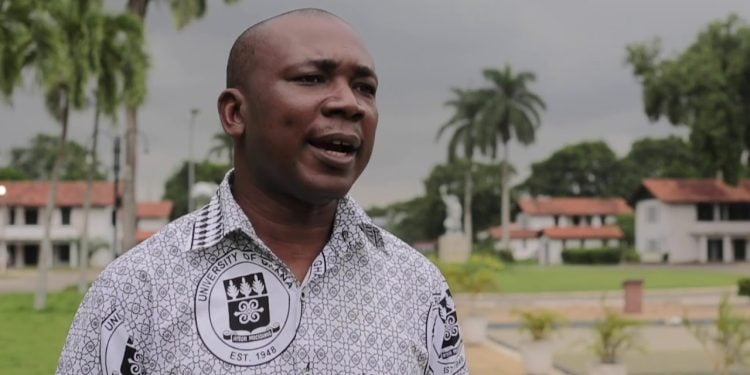Prof. Godfred Bokpin, a lecturer in finance at the University of Ghana Business School (UGBS), has sharply criticized the current economic state in Ghana, which he describes as severely impacted by frequent economic disruptions and policy failures. The World Bank had previously recognized Ghana as the world’s fastest-growing economy in 2019; however, this growth has stymied, primarily due to unsustainable government debt levels, rampant inflation, soaring energy costs, low agricultural productivity, and inefficiencies in regional trade. These issues have left many citizens grappling with the adverse consequences of an economy that seems to be in disarray, posing particular challenges to vulnerable populations who often bear the brunt of these economic difficulties.
Bokpin highlighted a critical point regarding the role of failed political policies in driving economic disruptions. He remarked that while external factors could contribute to economic instability, the failure of domestic policy creates a cascading effect that is challenging to reverse. Even if indicators at the macroeconomic level suggest recovery, many individuals and households are still entrenched in the hardship created by policy missteps. The disconnect between national data and the realities faced by everyday citizens underscores the need for more effective governance and policy initiative focused on the well-being of the populace, as blanket policies may overlook those most in need.
The economist further underscored the ruling New Patriotic Party’s (NPP) inability to analyze economic data effectively, positing that the establishment of a minimum threshold for including vulnerable populations in domestic data streams would have significantly improved the economic landscape for many. He pointed out that had this threshold been determined accurately, it could have led to the creation of a safety net for those who are marginalized. Such data-driven approaches are essential for designing targeted aid programs that recognize the distinct needs of vulnerable groups rather than applying generic solutions that fail to address specific challenges faced by parts of the population.
Despite government assertions of a “soft landing” and strides toward economic recovery, Prof. Bokpin expressed skepticism about the true state of recovery in Ghana. He emphasized that while some might claim success, the deeper realities suggest that many continue to face dire circumstances, with some individuals’ only way out of the distress being death. This candid admission reflects the mounting frustrations and palpable sense of urgency for a more robust and effective approach to economic policy-making that centers the real needs of the Ghanaian populace rather than focusing solely on macroeconomic indicators.
Turning to the pressing issue of energy sector challenges, Bokpin identified significant financial shortfalls – reportedly more than $1.5 billion – that need urgent resolution to ensure a stable electricity supply. These financial pressures compel the government to make difficult decisions regarding energy consumption management and infrastructure development. He argued for the need for a practical and strategic approach to address these financial challenges, alongside considerations of environmental impacts, emphasizing that a dedicated budget line must be established to tackle the environmental degradation that accompanies energy sector management.
As Ghana readies itself for upcoming elections, Prof. Bokpin urged political parties to confront the economic realities candidly and pragmatically. His call to action is for future leaders to acknowledge the complexities of Ghana’s economic situation and strive to implement solutions that genuinely address the issues at hand, as the consequences of neglect could have far-reaching effects on the nation’s long-term welfare. Addressing these multifaceted challenges will require committed governance and innovative policy designs that prioritize sustainable growth, social equity, and environmental stewardship as the country navigates its path forward.














